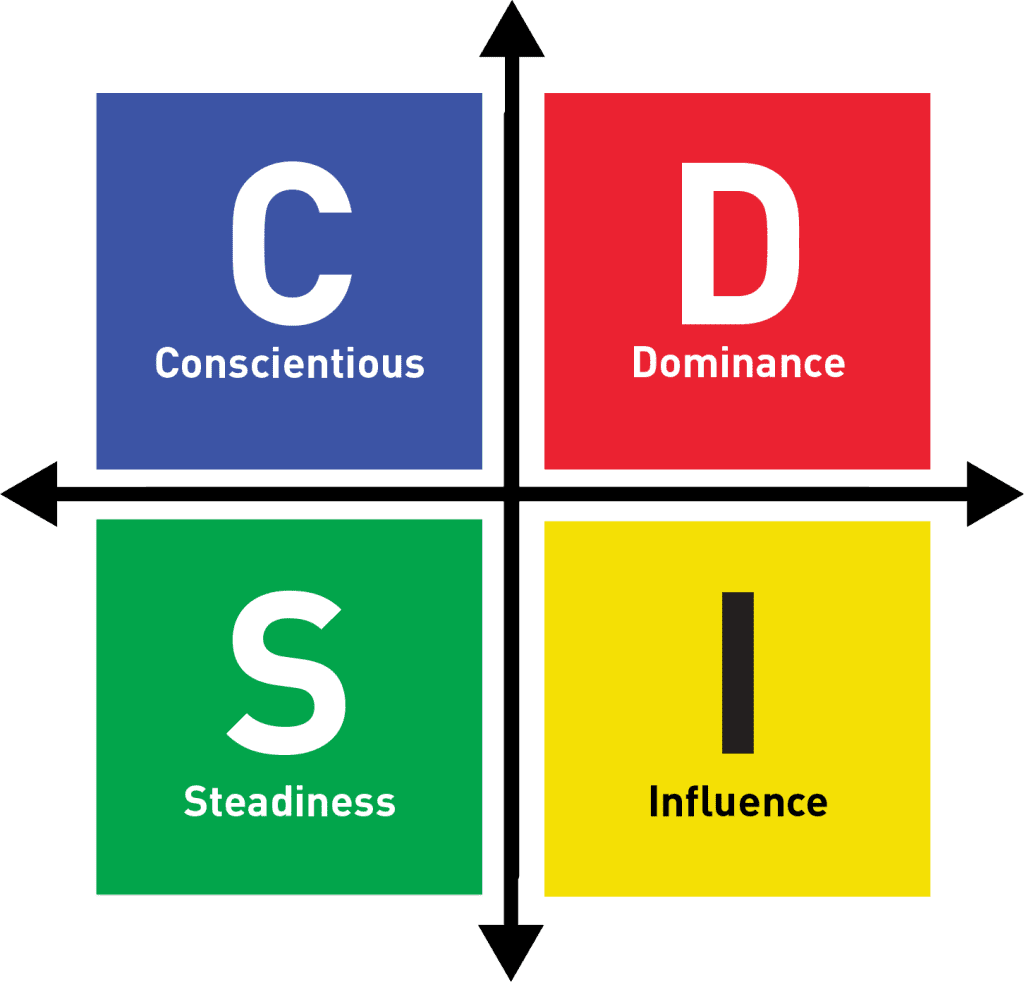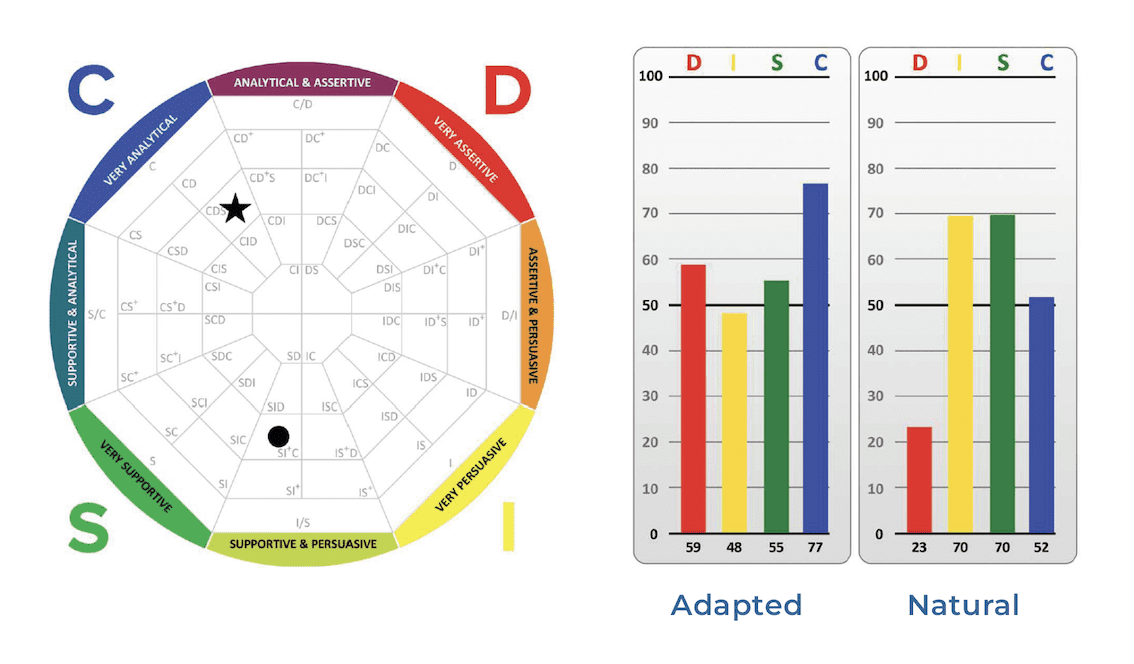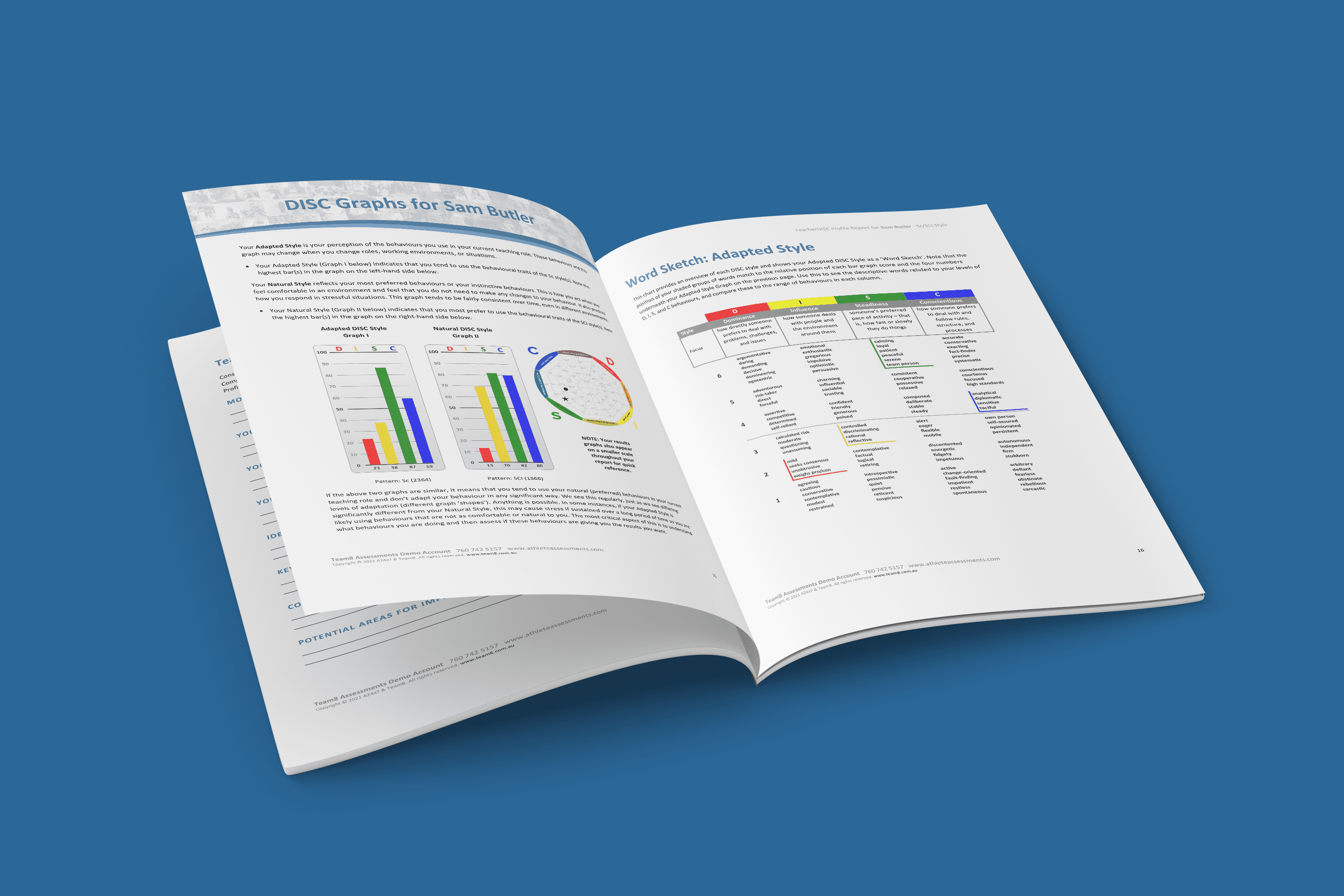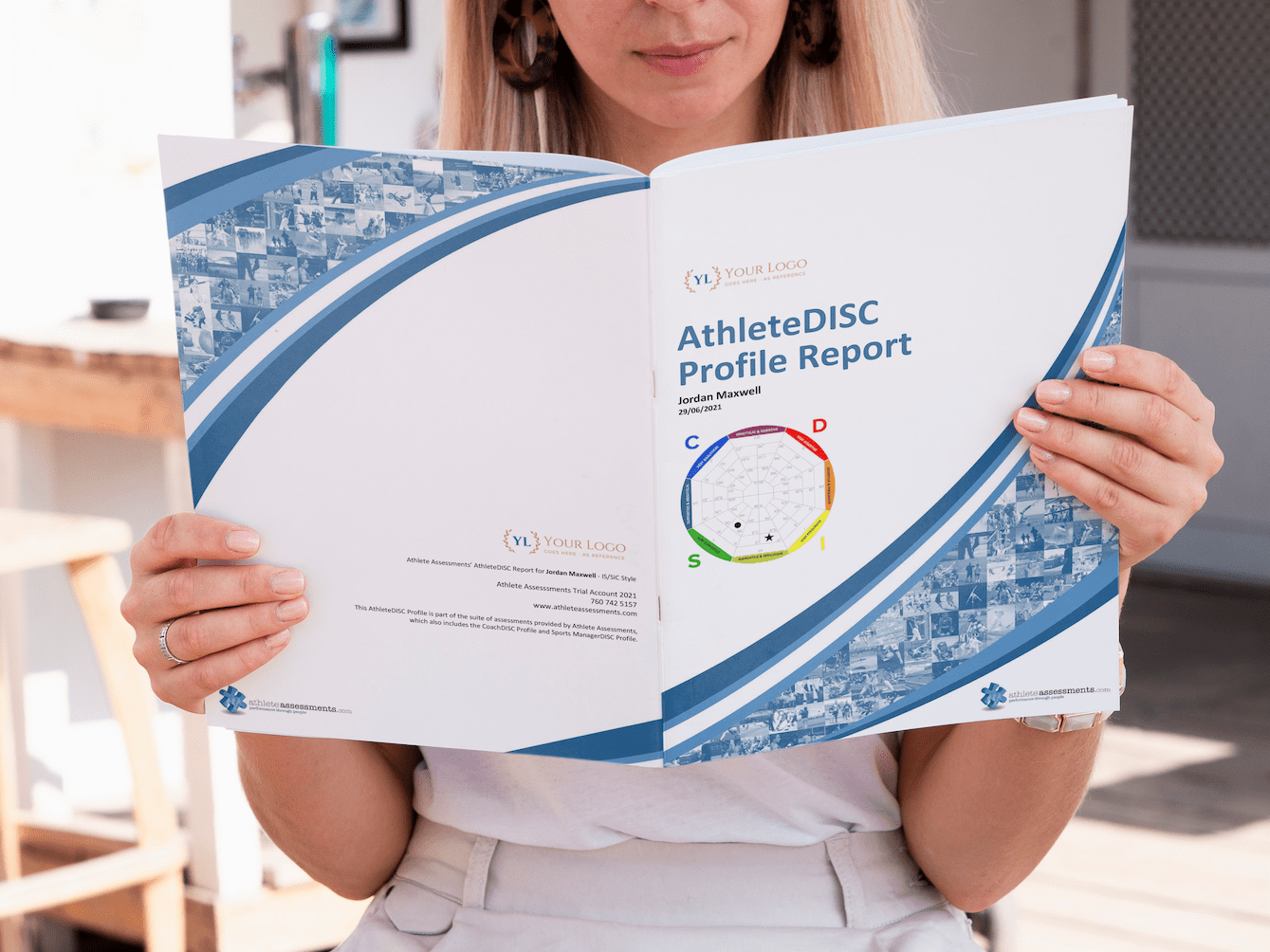The key to enhancing self-awareness
What is DISC Profiling?
5 Things to Know About DISC
- DISC is a behavioural assessment tool. It focuses on how an individual prefers to act and what they do, rather than their personality traits. Behaviour is flexible, and a function of our personality which is a much more rigid construct. We would never ask someone to change their personality, but we can ask the people we work with to adjust their behaviours to achieve better outcomes.
- DISC is a straightforward, four-quadrant model that can be applied in any context. Personality tests, such as MBTI, explore psychological theory and application to a greater extent, allowing you to truly master the area of expertise. However, these are also more complicated, psychometric assessments requiring extensive training to work with and administer.
- There is no best or worst, right, or wrong DISC Profile. Across business, education, and sport, we have profiled many of the world’s best and can conclude there is no pattern for greater or less success based on DISC style.
- The aim of DISC is never to ‘improve’ your Profile. Instead, developing self-awareness around how you prefer to behave, communicate, and be communicated to is the focus. Ultimately, these factors are key for leadership and high performance in any endeavour.
- First developed in the 1920’s, DISC was never copyrighted. Since then, it has been repeatedly improved upon, developed, and extended, which is why DISC remains the most globally recognised, reliable, and valid profiling tool today. This is why you will see many DISC tests on the market, free and paid, but not all are created equal.
Introducing the DISC Model
DISC is a simple, four-quadrant model which measures the degree to which an individual is likely to display each behavioral style, Dominance, Influence, Steadiness, and Conscientious.
We all display a degree of all four styles, but will have a preference towards one to three of them, this is what makes up our unique DISC style. But it’s not about confining people to their preferred styles or ‘boxes’ in the model. As DISC is about behaviour, it means we can adapt to display different behaviours to suit the preferences of others in order to improve communication or get a better outcome.

the four DISC styles
Conscientious
Indirect and slower-paced, guarded and task-focused
Conscientious refers to how someone prefers to deal with and follow rules, structure, and processes. Someone who measures high in the Conscientious behavioural style will focus in following rules and structure, prioritising accuracy and reliable facts. High C’s are often rule-driven, have a great attention to detail, systematic, and formal.


Dominance
Direct and fast-paced, guarded and goal-focused
Dominance indicates how directly someone prefers to deal with problems, challenges, and issues they are confronted with. Someone who measures high in the Dominance behavioural style, will actively and independently pursue, and immediately address problems or challenges. High D’s may come across demanding, assertive, daring, and driven.

Steadiness
Indirect and slower-paced, open and relationship-oriented
Steadiness indicates an individual’s preferred pace of activity – that is, how fast or slowly they do things. Someone who measures high in the Steadiness behavioural style, will exhibit a great deal of patience and prefer a calm, stable, and consistent approach. High S’s are often referred to as empathetic, accpeting, and team-orientated.
Influence
Direct and fast-paced, open and people-oriented
Influence refers to how someone approaches people and the environment around them, and is an extroversion-introversion scale. Someone who measures high in the Influence behavioural style, will be outgoing, seek personal connections, and enjoy frequent interactions with others. High I’s are likely extroverted, optimistic, talkative, and enthusiastic.

Experience quality DISC Assessments
Delving Deeper into DISC
Using the simple four-quadrant model, Athlete Assessments and Team8’s suite of DISC Assessments come with the ability to dive into the theory and application, to truly master and understand this area of expertise. Importantly, the aim of DISC is never to ‘improve’ your profile, as there is no better or worse individual DISC Profile. Instead, developing self-awareness around how you prefer to behave, communicate, and be communicated to is the focus. Ultimately, it is important to better understand what works well for you and what doesn’t within the context of your given environment.
It's important to remember
Everyone possesses some degree of each of the four DISC behavioural styles. It is the intensity of each DISC style and how they combine, that defines your unique Adapted and Natural DISC Profile.



DISC Profiling facilitates a developed understanding of what behaviours will produce optimal results for you, not only as an individual, but also when working in a team or group. Access the tools you need to increase levels of self-awareness and awareness of others to effectively adapt to different situations.
